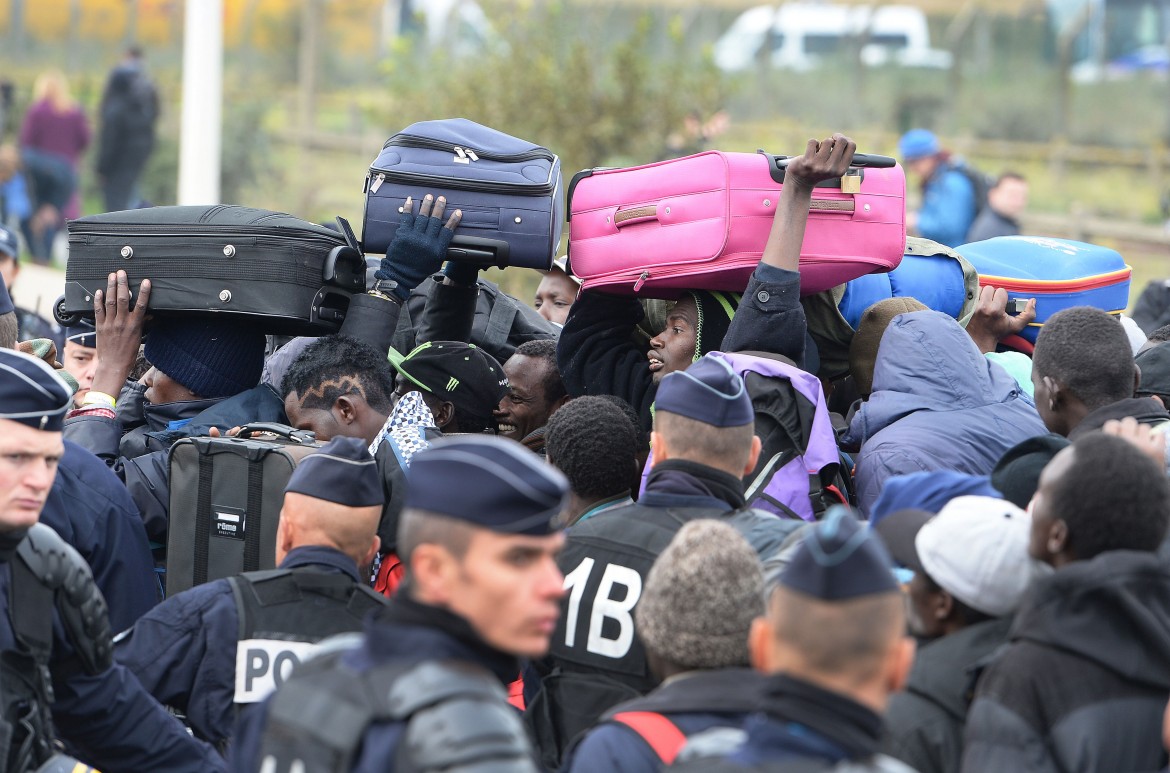Analysis
French rewrite of asylum law is a blow to refugees
The interior minister says “France must welcome refugees,” but the law he’s bringing to Parliament would make it more difficult for asylum seekers to prove their status.

The new law said to be aimed at “controlled immigration and an effective right of political asylum,” which Interior Minister Gérard Collomb presented Wednesday in the Council of Ministers, is also under the banner of this oxymoronic expression, which has been used by every president of the Republic since the times of Mitterrand.
The law is extremely controversial, and will have highly negative effects according to all humanitarian organizations, because it tries to speed up the decisions for asylum applications and regarding the situations of people arriving in France, reducing their time to react when faced with an expulsion order.
Collomb, a former Socialist, has said that “France must welcome refugees, but it cannot welcome all economic migrants.”
From this theoretical position, which in practice becomes objectively muddled, Collomb’s proposal would speed up the response time for asylum applications, setting a maximum of six months (versus 11 months today). It would double the length of time for holding refugees in detention centers from 45 to 90 days (which can also become 135 days), and change the period of administrative detention for verifying one’s documents from the current 16 hours to 24 hours (all unnecessary repressive measures, according to humanitarian organizations).
It would also reduce the deadline for submitting an asylum application from 120 to 90 days, and the deadline for presenting an appeal against an expulsion order from one month to 15 days. In addition, it would make illegal border crossing a crime: those who enter France without going through the border controls (for example, through Col de l’Echelle in the Alps) will risk one year in prison and a fine of €3,750. Deportations to countries of origin considered “safe” would be made easier; however, the previously touted proposal for defining “safe third countries” in order to deport people to countries other than their own has been removed, following protests.
The constructive parts of the law provide for a four-year residence permit (instead of the current one year) for certain “subsidiary” categories of refugees, stronger protections for women who are in danger of sexual mutilation or who are the victims of violence, and the extension of family reunification to all minors.
Prime Minister Edouard Philippe has promised that the 72 proposals for a better integration of refugees advanced by Deputy Aurélien Taché (En Marche) will be implemented. Some particular provisions include a well-defined pathway for each individual, with a substantial increase in the number of hours for language and training classes, better assessment of the equivalence of diplomas issued in foreign countries, and facilities to promote the civic engagement of French citizens who help refugees find accommodation and integrate.
Most importantly, it proposes the reduction of the period during which an asylum seeker does not have the right to work from nine months to six months—this period being one of the reasons which have stoked the impulse towards rejecting foreigners in European countries.
Cimade, one of the oldest and most prestigious humanitarian aid organizations, characterized the legislative proposal as “dangerous.” According to its secretary general, Jean-Claude Mas, with this law we will be faced with “a vertiginous drop of refugees’ and migrants’ rights in France.”
And more and more voices are being heard in favor of the abolition of the “crime of solidarity” with migrants, which has led to convictions in the Roya region and in Calais. Collomb, in reply, said that France has more favorable laws than other European countries, and as a result is a bigger “draw,” pointing out that France has issued 262,000 new residence permits in 2017.
Meanwhile, the Right, which finds the proposed law too soft, is stressing that there have been “just” 15,000 expulsions in the same period.
The law proposed by Collomb will not have problems going through Parliament in April, even though the first signs of discomfort are being heard from among the members of Macron’s majority, who were willing to swallow labor reform without any protest. One hundred deputies from En Marche (LRM) have expressed strong doubts about a law that, above all else, gives more room for repressive measures.
Pointed criticism was heard in the past week about the law’s proposals regarding the “Dublinated” (the persons registered in the EU country of first entry) and the conditions of detention: “There is a risk of the trivialization of incarceration,” said an LRM deputy. For a part of the deputies of the majority, this new law is turning into “a matter of conscience.”
Nonetheless, Tuesday the Council of State refused to repeal the controversial circular by Collomb which allows for conducting a census of people in emergency shelters, although only on a “voluntary” basis.
Originally published at https://ilmanifesto.it/immigrazione-e-asilo-malessere-per-la-mano-di-ferro/ on 2018-02-21
